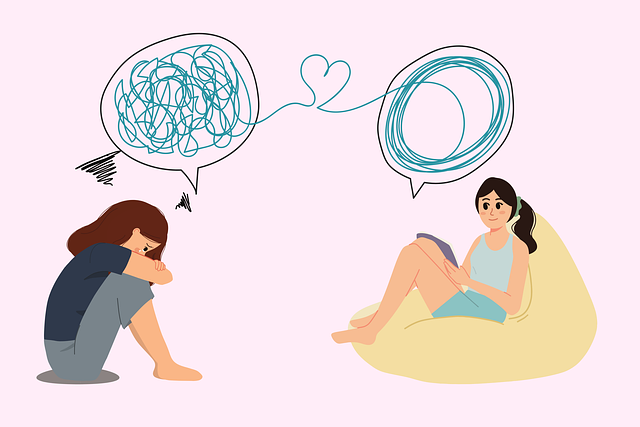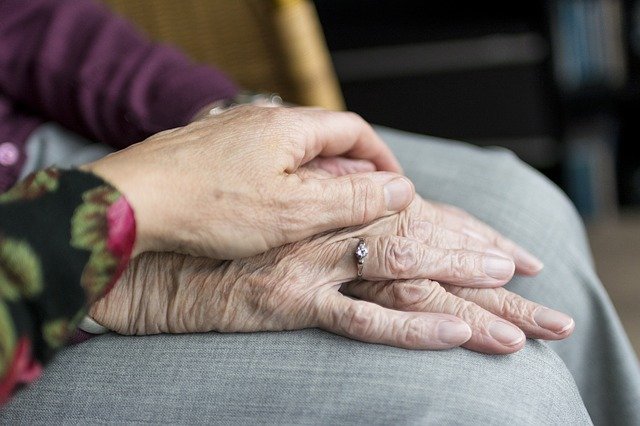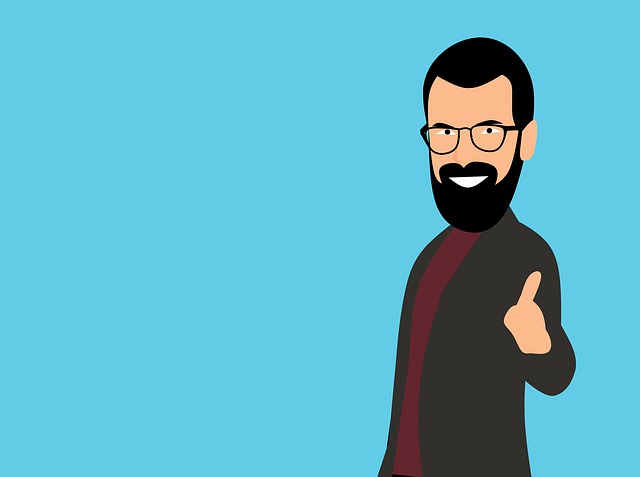Tag: Counselor Manila
Who really needs counseling? Why is there a stigma against mental health concerns?
by Nathan Chua
I am writing this in the hope that we can soon find ourselves disabused of the ways our current mental health system has set us up to think about who needs help in their journey towards better life skills. This post is going to include a personal account of my learnings in the field and how elated I am to find my reservations affirmed by a group that believes in empowering people rather than casting them as one of those unfortunate ones who need correction.
I remember back in my graduate training days, I was introduced to the Diagnostic and Statistical Manual of Mental Disorders (DSM). The professor appeared very learned and quite self-assured that he knows the manual by memory. I really felt like an idiot compared to how he was able to diagnose a case accurately as one of the exercises that formed part of the lecture that day. In my mind, I thought, this person must be a genius! The text we were using was even entitled as a simplified one and it was already more than 500 pages long! The actual DSM manual is even less reader-friendly with more clinical language. I told myself, I just want to be a helping person, a counselor. Does it really take a photographic memory or an incredibly fast reading speed to become one?
Moreover, as I read through the required textbook, I noticed how each syndrome or diagnosis ends with a segment that indicates a mental health disorder that is not otherwise specified. So besides having to remember each symptom in a list of more or less 10 items, I also have to recognize the ones that cannot be found in the list!
Each diagnosis can be made if a client shows around five of these symptoms and voila! You got yourself a diagnosis! And off you go to your counselor or therapist, or to the local pharmacy to take the medication that will address your symptoms. And as I read through each of the bullet points, I noticed that for almost every set, I could identify with a few of them! I could at any given point in my life, be a person with a narcissistic or borderline personality! I just miss out on one or two and then I can breathe a sigh of relief knowing that I don’t have that disorder!
I told myself, if this is the way I should do therapy then I don’t think it is something I would find enjoyable. What’s worse is that I see clients who have used such diagnoses on hand, and eventually use them as excuses for their behaviors. Furthermore, it is used to cast blame on other people for not making room for their symptoms or weaknesses. In other words, I can only change if others change the way they treat me! And that includes the way my therapist handles me!
In their work in contextual behavioral science, a group of researchers have found this system to be unhelpful or even harmful. The group proposes that what we need is a system that uplifts people and identifies what people do that creates problems in the way they behave in society. Their research has brought to fore the idea that all of us need therapy. The metaphor used here is that of how preventive medicine works. We don’t recommend a healthy diet and adequate exercise only to those who have already shown signs of high blood sugar or high cholesterol in their systems. These practices are for all because there are certain processes that our bodies go through which are universal and can be addressed without having to wait for trouble. The same is true with our mental health. We need a regular diet of therapy or behaviorally flexible skills that we can practice in order to create better lives and relationships.
Sadly, because of these models of disease and symptoms, many come to therapy rather late in the game. People wait until their lives become stuck. I am no exception. I have seen my relationships destroyed and precious time unwisely spent on struggling with mental processes that are otherwise part of being a “normal” human being. It’s time for a change. It’s time for us to pursue this path and see if we can get better results in the lives of many.
Do you have irreconcilable differences with your partner?
by Nathan Chua
Couples often wonder how the person they loved has turned into someone they can’t stand at all. Why can’t he be responsible enough to take care of our finances? Why is she so disorganized and impulsive? He seems to care more about his family than he cares about me. I’m bored in this relationship. My partner doesn’t care about what I feel. She is too quiet and aloof. I don’t feel any closeness anymore.
Of course, there are legitimate reasons for you to consider leaving your partner such as violence and infidelity. But most couples often say that their issues mostly revolve around their differences. Thus comes the term, irreconcilable differences. What I enumerated in the first paragraph can be summed up in this term that we often hear couples declare as their reason for separating. Now don’t get me wrong. I don’t mean that these cannot be legitimate reasons to call it quits. I am in no position to tell you that you should stick to your relationship just because your problems simply fall into this category. And if your partner refuses to seek the help that your relationship could benefit from, then you may have a legitimate reason to find a more meaningful life either without a partner or with someone else.
Herein lies the beauty of Integrative Behavioral Couples Therapy or IBCT. One of the details that I look for in couples as I work with them, are the reasons why they fell in love with each other in the first place! Let’s take the complaints that couples bring to the therapy room that I enumerated in the first paragraph.
Contextual Thinking vs. Essential Thinking:
Complaint #1: He’s not responsible enough. He is disorganized and impulsive.
You may have liked the idea that your partner now was, during your dating days, the helpless person who appreciated it everytime you would come to his rescue. Somehow you found a role that was satisfying in this relationship. It could also mean that your partner’s impulsiveness in certain contexts, can be an endearing quality! Why, he would buy me an expensive gift out of nowhere!
Complaint #2: She seems to care more about her family than us.
I think this is one of those issues that couples complain about quite often. Given our culture of being in a context where family is a Filipino’s greatest resource in hard times, is it any wonder that your partner finds it difficult to split loyalties in the context of your relationship?
Complaint #3: I’m bored in this relationship. My partner doesn’t care about what I feel. She is too quiet and aloof. I don’t feel any closeness anymore.
Maybe when you were looking for a partner, there was an attraction to this person’s aloofness. It made this person mysterious and interesting. She is also quite the opposite of the noisy, agitating people you grew up with as a child. Finally, I can have the peaceful and quiet relationship that I was looking for. At the same time, your aloof partner may have liked the idea that you gave him the emotional element in his life. So goes the saying that opposites attract.
IBCT encourages couples to see that their partner will never be everything to them. No couple is one hundred percent compatible. In fact, the chances of you ending up with someone who is incompatible with you is 100 percent! Let’s face it, your partner who goes at a snail’s pace will go at a snail’s pace in situations when this quality can be disadvantageous to facing life’s inevitable problems as you go through it no longer as individuals but as a couple.
So if you are wondering what I mean by contextual vs. essential thinking, your partner and you behave differently in different contexts! Your partner is not essentially a bad person. (Believe me, I have yet to encounter a client who I felt had inherently harmful intentions!) If you come to therapy with the same intention of saving your relationship, it is more likely that you and your partner are doing your best to show that you care and you want your partner to be happy. Your partner is not essentially defective. They just learned to behave in certain ways in certain situations that at times covers other situations that do call for a different behavior!
That’s what IBCT makes you aware of as aspects of your relationship that are better off accepted and may take a long while or even forever to change. If we can learn to notice and accept these so-called irreconcilable differences, chances are, your partner will notice that. And having the minds that we have, I always go back to what Carl Rogers had said many years ago. Let me paraphrase it to apply not just to yourself but also for your partner and your relationship.
The Quote from Carl Rogers:
“The curious paradox is that when I accept myself, just as I am, then I can change.”
Paraphrase:
“The curious paradox is that when my partner accepts me, just as I am, then I can change.”
Coping with Tunnel Vision During a Crisis
by Nathan Chua
I am quite certain that most if not all of you, my readers, have experienced being caught in a difficult situation and having to focus mainly on the problem at hand. When there is a crisis, we often develop tunnel vision and end up doing greater harm to ourselves and others. For example, when your teenaged child comes home really late, tunnel vision can lead a parent to think that the child doesn’t care and that the only solution is to show your anger in order to keep them in line. These situations don’t usually end up well. Often, what could have been a moment of tenderness and bonding, turns into a messy fight.
Now don’t get me wrong. Tunnel vision is not always harmful. There are plenty of times when you and I need it. If your toddler suddenly feels the urge to go towards an open window and tries to climb over it, tunnel vision will help you get your child out of that precarious situation. In these instances, following the dictates of your mind works well for you and the survival of your child. If there was a wild animal chasing you thinking you are prey, tunnel vision is what you need in that moment to come out of it alive.
The topic I’d like to discuss here is about the times when developing tunnel vision and instantaneously acting on it, may not be a move in our best interest. A timely example would be that incident when we saw a famous actor in Hollywood come up to a comedian in front of millions of people watching the Annual Academy Awards for motion pictures. We can say that Will Smith developed tunnel vision in the heat of the moment. Although the context of the moment would certainly make hurt feelings understandable, standing up and committing a violent act is the proverbial solution that becomes the problem.
On a larger scale, think about the war in Ukraine. That tunnel vision can cause egregious acts done against our fellow humans. To use an example closer to home, how many times have we seen road rage cause tunnel vision, rendering someone who has no record of violence helpless enough to physically or emotionally harm or even kill someone for a slight.
So here are some ways that I borrowed from Dr. Steven Hayes’ book, “A Liberated Mind,” that could be helpful for us to cope with tunnel vision when it occurs. In my opinion, it is but natural for us to get into that mode of mind, it only takes some mindfulness in the moment to avoid as I had mentioned earlier, making the solution become the problem.
- Try to sense in your body where you feel this current issue is affecting you. Is it a heaviness in the chest? Does it feel like a weight on your shoulders? Tightness in your head? Notice these sensations and give it a good clean yes. Give yourself a minute to experience this without defense.
- Have you seen anyone you cared for in your family who had suffered something like this? Recall that moment and see if you can purposefully witness their struggles with compassion.
- Say yes to the thoughts that come with this problem. See if you can drop any kind of struggle with it and notice them for what they are, just thoughts.
- Is there something here that you can learn from if you project yourself into the future? Is there something in this experience that can help you learn something about your life’s journey?
- See if you can find out why this is so painful for you. Behind anything that hurts you deeply, there could be the values you hold dear. Maybe you’re hurt because you care about honesty or openness. Maybe you are angered because of your love for justice. What could be the loving and caring thing to do at this moment?
- If this was a story in a book you were writing about a hero’s journey, what could this moment be for your hero? How can this moment make your hero become wiser and more alive?
- Do you have other memories attached to this present problem of yours? Can you willingly say yes to just one more of these?
- If there’s someone that you blame for this, can you think of times that you may have done something similar to what they’ve done to you, even if it was in a less hurtful way? Sometimes we point our problems towards other people and avoid seeing how we have in the past behaved in the same way.
- If you had a friend who had this problem, how would you feel towards them? What would you suggest they do?
- You have picked something that your mind says you have to say no to or that you shouldn’t have. Is there something that’s hard for you to give up in order to let go of that no? Perhaps saying yes to the hurt feelings would indicate that you are a weak person. Can you give up that struggle with that thought and allow that to be there just as a thought?
- If you could have these thoughts and feelings without having to fight them, what would you be able to accomplish in your life? Think about taking this along for the ride of your life or the journey you set out for yourself.
That’s all for now folks. Hope this will give you a wider perspective every time your mind gives you that urge to go into tunnel vision.
Climbing the Mountain of Your Life
by Nathan Chua
Have you lost hope recently? Does it feel like you have hit a ceiling in your life? Does it feel like everything is just one dreadful day after another? Has life turned into a series of musts, shoulds, and can’ts? Are you tired of running away? Perhaps running away from a life that you had always wanted? What is left to pursue with your time?
Whether it’s an addiction, anxiety, depression, or whatnot, it’s probably time to change your perspective on what’s going on with your life. If feeling safe is what you had been looking for in a long time, then you might notice that it is only a matter of time when your anxiety, depression, addictive urges, or anger catch up with you. It’s a fruitless endeavor. Why? Because you had been hardwired to have them. To what extent will depend much on your personal history. Unfortunately, no matter what, your personal history is going to be with you. Your memories are not your roommates that you can avoid by just picking another place to stay.
Clients who start gaining the ability to move forward in their lives would often run back for help whenever there are new challenges that come or when these obstacles feel insurmountable. Well, here is something that might encourage you. Let’s say you are a mountain climber. As you climb up that mountain, you would probably feel the challenges getting more daunting. Why? Because the higher you go the harder your fall will be. You also notice that you begin to have some bruises or more tired muscles as you reach one milestone after another. Your supplies may also show that you have less of what’s left as you climb. There may also have been unexpected delays or injuries that needed more time to heal.
Such is life when you go after what it is that gives it meaning and purpose. Success or no success, what’s important is the climbing. I mean you probably wouldn’t exchange the experience with just having a drive up the mountain in a nice SUV.
You might be reading this and think about what this has got to do with your problems. Let’s say you have the dream of finding a partner that you can love. You may fail along the way. Not all your relationships end up with an exchange of vows. The other end of this journey could be finding the person with whom you want to spend the rest of your life. Either way there is one common denominator in this pursuit of a meaningful relationship. You want to be in a relationship because you want to love and care for someone. And this doesn’t change regardless of outcomes, but the challenges can change and become even more challenging.
Another example is, you might be working hard for your dreams of sharing the fruits of your labor with people you care for. Bottom line is you probably are not working for money for the sake of one day lying down on top of it. You probably want to use this money for the people that matter to you, including yourself and maybe that sense of being independent. Whether you succeed or not in making the level of income you want, it would not change the fact that you wanted to be generous with what you earn. So the outcome doesn’t really change who you are and what you want to be. That’s a constant companion. They are your dreams and aspirations of being the person you want to be and living the life you want to live.
So let that mountain that I just stuck in your mind be your guiding metaphor. As you climb higher towards your dreams, you will have new and more difficult challenges that will come. Learning how to embrace them as opportunities to continue with your mission is the key. It is not about results, it’s about you and your dream of just being what you want to be in every step of your way there.
Facing the New Year with Awareness, Courage, and Love
by Nathan Chua
The title of this post is not an original, at least the part that counts most. Many times in my graduate studies, I had wondered what, bottomline, counseling was about. I mean, what is it basically that we are trying to accomplish? At some point in my graduate studies, I thought it was forgiveness. It turns out that I will find an answer to this in my readings of Kevin Polk and his co-authors. It’s about helping clients to become more aware, to act courageously, and to do so lovingly.
Let’s take them one at a time.
Awareness:
Much of what we regret doing stems from acting in ways that are automatic. How often have we seen people commit homicides in this country, only to see them realize that they had lost control over their actions for a split second? There was even a case of a police officer who had a sterling record of service, who now has an indelible audiovisual account of him shooting a hapless middle-aged woman dead. His promising career that took him years to build was upended by a brief moment of rage.
Awareness is a word that I often heard around the graduate classes I attended. In ACT or Acceptance and Commitment Therapy, the word that is more often used to describe awareness is noticing. For me, the gerund form makes it an active pursuit that we can do from moment to moment. If we learn to practice noticing, then there’s a chance for a split second that the police officer I earlier mentioned would be able to choose more effective actions in that moment of rage. It could have averted the loss of two lives. One ended by a shot in the head, while the other was left to languish in prison.
Courage:
One thing ACT has taught me is that noticing is not just noticing or being aware of the difficult thoughts and feelings that we have. It also involves noticing the rest of us. By that I mean, we also notice other facets of the context that can move us in the direction of what is important to us in each moment. Being a complete human being with all its history and complexity involves noticing that part of us that can move towards important ends.
Over involvement in avoiding and controlling difficult inner experiences can lead us to tiring out of life and learning hopelessness is just around the corner anytime. The peculiar thing about us is that we are capable of doing things that we don’t normally expect from ourselves when the stakes are high enough to respond in ways that go beyond our own urges to be self-protective. We seem to be capable of running towards difficult inner experiences rather than run away when it matters. That shy, unassuming classmate of yours can all of a sudden show up in the news being called a hero for saving a complete stranger from a burning car. As Dr. Steven Hayes, the instigator of ACT, loves to say, “That’s just the kind of monkey we are.” So we are capable of doing courageous, selfless acts. It’s just built in. It can resurface in our consciousness if we become more noticing.
Love:
And as we do those courageous acts, we are also capable of seeing the world from other people’s perspectives. We are capable of empathy and acts of kindness in the face of challenging circumstances. You, my readers, do it every day! We can do inconvenient acts for the sake of someone we care for. We come to the side of those who mourn. We help out without anyone knowing. We care for our kids even if it means sacrificing our own convenience.
That in a nutshell can sum up what we do in counseling. Making us the whole human beings that we were meant to be based on how we were wired. It’s not easy being human because we have a very handy tool that can also cause us much suffering. The mind is there to do its job. Objectively noticing that it is neither a boss nor an enemy makes a big difference. We just need to learn to notice it doing its thing, face our fears and do things that matter anyway, and then do it with love and care for ourselves and others as well. In other words, we are all capable of awareness, courage, and love, but sometimes we are not aware, or aware that we are not aware sometimes. And this my friends, takes practice!
Have a more noticing new year to come and thank you for coming to this place for the past 2021.
Listen to this post on Spotify! Click here!
A Life Worthy of Your Suffering
by Nathan Chua
“There is only one thing that I dread: not to be worthy of my sufferings.”
Fyodor Dostoevsky
I recently heard a podcast interview of Kelly Wilson, one of the developers of ACT or Acceptance and Commitment Therapy. He had a well-known quote that the interviewer eagerly mentioned at the beginning of the program, which went something like this, “Values and vulnerabilities are poured from the same vessel.”
One thing that really drew me to ACT is it’s probably the only type of therapy I know of that blends values into a practice which used to be for me, more about symptom-reduction. Much of my work before ACT was focused on this. Getting clients to get over their problems or to understand the roots of their symptoms for them to finally start moving forward. For example, my goals were more about helping an angry person be less angry, or a depressed person become more engaged and alive, or a shy person to be more assertive. It was more of that feel-good about one’s self type of approach.
ACT however, therapy does not have such goals of symptom-relief. In fact, one of the best ways to start ACT in my experience, is to have people get back in touch with their values, or qualities of being that were and are still within them, and they still aspire to demonstrate in their daily living, but have long neglected due to this overemphasis of having positive thoughts and feelings, not just most of the time but at times even all the time! We often assume that our values leave us. The reality however is that they often get relegated to the background and are far from our consciously pursuing them.
So what you may ask has vulnerability got to do with our values? It is in our values that we find the scariest parts of ourselves. As the old ACT expression goes, we care where we hurt and we hurt where we care. If one of our deepest aspirations for ourselves is being honest, it will be very scary to be honest. Loving someone means getting in touch with that part of us that’s most vulnerable or hurtable. Aiming for success means feeling those anxious moments as we pursue uncertain ends. As one of the developers of ACT once expressed, it is about learning how to feel good rather than feel good.
We can choose our suffering. We can suffer because of all the efforts we make to eradicate our difficult thoughts and emotions. Kelly Wilson has a name for this that really struck me and served as my inspiration for this piece. He calls it valueless suffering. Put in other words, we can ask ourselves, “Do we really want a life dedicated to feeling better or getting rid of depression or anxiety or what not?” Now how is that going to look on top of our tombstones? Here lies Nathan, he worked really hard to feel good about himself!
The other option is that we suffer for what we believe in and what truly matters to us when we leave nothing but our memories behind. This is when we suffer because we choose justice over injustice, love over fear, freedom over safety, etc., in other words, our values over shortcuts.
Let me leave you with this quote from Viktor Frankl:
“Dostoevski said once, “There is only one thing that I dread: not to be worthy of my sufferings.” These words frequently came to my mind after I became acquainted with those martyrs whose behavior in the camp, whose suffering and death, bore witness to the fact that the last inner freedom cannot be lost. It can be said that they were worthy of their sufferings; the way they bore their suffering was a genuine inner achievement. It is this spiritual freedom — which cannot be taken away — that makes life meaningful and purposeful.” Viktor Frankl
Living our values is going to be hard, and we are bound to fail at times. But one thing I can guarantee, it will be rewarding unlike any other thing we may have experienced, and I can guarantee it will be rewarding…up to that very last breath we take
How to be OK even when everything else is not
by Nathan Chua
Multiple deadlines, challenges at home and at work, you’re about to lose your job, someone in the family has a serious ailment, pressure is coming from all sides…life happens and is coming at you like a savage beast hungry for a fight to the death! These are the times when people come to see me. The world has turned against my clients and there seems to be nothing they can do that has succeeded in changing anything. In fact, the more they try the worse the outcomes become!
It is also during these moments that our minds go on overdrive, drilling judgmental thought after judgmental thought into our consciousness. The key here is to reach a level of awareness of what is within or outside our control. If you ever wondered what it is that makes us feel that we are living ineffectual lives, it is our misdirected efforts to control that which is not subject to control.
Just be the human being that we had become through billions of years of evolution! We have an assortment of wonderful tools inside our nervous system. Turning against these evolved functions, is like working against gravity.
Ultimately, what happens to us in life is not within our control, but our responses are. The goal of psychology as a field of scientific study is to bring to bear what it is that makes us live ineffectually and then find ways to change or interrupt that process to get us moving towards a different, more effectual, and more life-enhancing direction. So it really does not matter as much what happens to us, as how we face them. How we handle ourselves in those moments is where we can bridge the gap between what we are and what we aspire to be.
The question we could keep in mind is, “Did we handle it well?” Here’s a paraphrase of Dr. Darin Cairns words reminding us that we can be okay even when everything around us tells us we’re not.
“I can’t promise you everyone’s going to like you.
I can’t promise you that people will always know you exist.
I can promise you this, if you like you at that time, if you liked how you lived it, then you’ll like that you were true to what you believed in.
That you liked how you handled yourself in terms of whatever you value, then you’re always ok.
You’re ok when you’re popular, you’re ok when you’re alone, you’re ok after a breakup, you’re ok when you’re scared to death, and you’re ok when you’re hurting.
You don’t have to stand tall but you do have to stand up. You don’t have to think that you’re better than anyone, you don’t have to have anyone praise you, but you do have to be willing to exist for you.”
So to you my friend, I can say that no matter how dire your circumstances are at this moment, take a look at yourself ahead of you by a year or so, and ask yourself, “Would your future you like how you, the present you, handled the situation?” I hope that brings you back in touch with what truly matters for you in each and every moment that comes. No matter how not okay these moments can get, you can be okay knowing you stood up for you!
Listen to the podcast version of this post on Spotify! Click here!
Abandoning the Disease Model
by Nathan Chua
It pains me to see a number of people who come to me and say that they have spent so much time and resources trying to cure their “mental illness” with a handful of medications, only to find out that after years of their hard work and dedication to the treatment, they have come full circle to the same old problem. Maybe it was instinct, but in all my years in this field, I have always had an affinity to talking through rather than medicating out of psychological issues. I never thought the idea that there was some germ or biological impairment involved in psychological struggles was tenable. Contextual behavioral science seems to bear my hunch out.
I must admit, some parts of my work in the past, especially the ones that dealt with developing insight, may have sounded like there was something broken or wrong with someone’s history or biology. I can vividly remember part of my training in grad school where the class had to figure out what diagnosis/diagnoses to give a client. It was tough! Why? Because the diagnostic manual, the simplified version for that matter, was about 600 pages long, and there were so many overlapping symptoms among the hundreds of diagnoses that I frankly was amazed at how the professor was able to come up with one or two! I thought that only a genius with a freakish memory can come up with an accurate diagnosis, let alone making a diagnosis that matches that of the professor’s.
As I have learned now from the philosophy behind Acceptance and Commitment Therapy (ACT), such a practice may not necessarily come up with the best results. Far be it for me to make an indictment on the whole diagnostic and classification system. There certainly is a place for such, but I guess the bottom line here is, finding out what works best for the client. In certain cases, such diagnoses can, for many clients, become a kind of self-fulfilling prophecy or a crutch that is liable to be used in gaining the attention of others.
What attracted me to ACT is its pragmatism. If I was to join this field of work, I want it first of all to work for my own issues and struggles. Secondly, I want to see results that are meaningful and effective to my clients, which is precisely what pragmatism is after.
Moreover, seeing the world through ACT eyes means espousing not just the alleviation of human suffering but also the promotion of human prosperity. As Maslow had proposed with the coming of the humanistic approaches in psychology, humans have certain aspirations that no other creatures on this planet share with them…self-actualization.
My first nine years of work primarily was devoted to alleviating suffering, which is how the disease model “works.” Get rid of your difficult thoughts and feelings or learn to manage them, then all will be okay. One can just go back to the same tired old life that got them into therapy in the first place.
So why have I devoted my last two years of continuing education to ACT? Well it is a matter of asking myself if just managing my emotions was good enough to make me realize that I have lived a full and purposeful life. But life would be so much more fun and challenging if I went for not just managing my inner thought processes, but also being gungho to what for me means doing something out of my limited time on earth.
As of now, I think this is the best science we have for attending to our problems of living. The science has yet to determine that there is a certain biological cause to the effect of mental wellness. Otherwise, don’t you think that the world’s geniuses in the field would have come up with a drug that takes care of all of that?
Who knows? We might end up finding it in the future. But I go only as far as what the scientific evidence shows me to be useful in helping others better their lives, now! So I have chosen this route, until a better science proves this to be inadequate.








